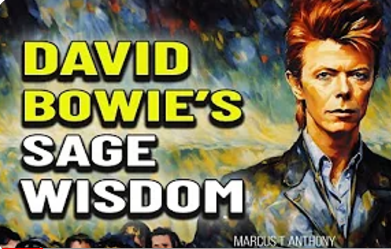Here’s a roundup of some of this week’s most significant articles and internet events related to mind and the future. This post may be updated over several days.
AI and IT
Farhad Manjoo, Wall Street Journal: “Stop Pouting About Tech’s Next Big Thing, It’s Here”.
Main idea: AI is augmenting, rather than superseding, humans.
“…robots aren’t necessarily coming for your job. It’s been a cliché in the Valley for years that machines will replace humans across a wide variety of job types. But while artificial intelligence is still advancing at a furious pace, I was thrilled that AI is augmenting, rather than superseding, humans. Look how Redfin used tech to create better real-estate agents rather than replace them, or how the app Duolingocrowdsources human intelligence to produce better translations than machines are capable of.
I think we’re witnessing the dawn of a new paradigm in machine-human cooperation: Combining machine intelligence with biological intelligence will always trump one or the other. Machines make us better, and we make machines better. There’s still hope for us. Welcome to the bionic future.”
Sydney Morning Herald: “Brain-like computers are learning from experience”.
Main idea: Computers are beginning to learn like to learn like humans – correcting their own mistakes
“The new computing approach, already in use by some large technology companies, is based on the biological nervous system, specifically on how neurons react to stimuli and connect with other neurons to interpret information. It allows computers to absorb new information while carrying out a task, and adjust what they do based on the changing signals.
In coming years, the approach will make possible a new generation of artificial intelligence systems that will perform some functions that humans do with ease: see, speak, listen, navigate, manipulate and control. That can hold enormous consequences for tasks like facial and speech recognition, navigation and planning, which are still in elementary stages and rely heavily on human programming.”
Business and Innovation
Gill Oliver, Oxford Mail: “Quantum idea is ‘catching on’ with the top managers”.
Main Idea: Danah Zohar is still teaching organisations the relevance of quantum physics to business and innovation.
Zohar says: “People in today’s companies are better understood and treated as conscious creators and implementers of ideas, rather than as programmable machines… Quantum mechanics provides an understanding of the mind-brain connection that is not only completely in accord with intuition and common sense but that also describes the way in which mind-brain processes act to fashion the activities of our brains in the service of our ideas.”
Human Intelligence
Adam Marshall, Today Tonight: “The remarkable bat man”. –
Main Idea: This incredible story shows how human intelligence can be developed in ways that are scarcely imaginable to ordinary folk. Daniel Kish has been blind since birth but uses a constant clicking sound to picture his surroundings – much like a bat.
“It is a form of echolation. He effectively sees with his ears and that is why he has been labelled as ‘bat man’… With every click, an image is constructed in his mind based on the echo that bounces back. Daniel likens it to flashing a torch in the dark.
“This is a skill that people can learn,” he says. “We’ve taught upwards of a thousand blind students all over the world and going.””
Books
Craig Weiler: Psi wars TED, Wikipedia and the Battle for the Internet
Subject: Craig Weiler recounts his experience of the TED controversy which saw videos of talks by Rupert Sheldrake and Graham Hancock effectively censored.
“This book explores the basis for the controversy and why so many intellectuals support major changes in scientific thinking.
The book also explores the question: What’s up with these science reactionaries? It also examines the people and the organizations who lobby the mainstream media, universities, and scientific organizations, and who work together to bend Wikipedia to their point of view.
The controversy over the nature of reality has a profound effect on our society. Chances are that some of the science you read about in Wikipedia, and popular magazines and newspapers, has been altered to reflect the views of these skeptic reactionaries who have organized to “protect” you from “crazy” ideas.
Steaphen Pirie: Simple Tools for Clarity, Understanding and Betterment
Topic: Non-fiction. Stephen Pirie outlines practical tools for better thinking, Useful for organisations and individuals. Incorporates the idea of the extended mind.
My Amazon review:
Steaphen Pirie has put together a very succinct volume here. Tools for betterment are precisely what you’ll get from this book. The tools help us not only in reframing experience and seeing things in a new light, but in helping us tap into the intuitive mind. The latter incorporates non-local awareness, an important expansion of human intelligence, and part of what Pirie calls The Big Now. The author implores us to be adventurous, bold, and honour hunches and explore future possibilities. His view is to balance left and right-brain thinking, the masculine and the feminine dimensions of mind. It is a noble quest, and one well worth embarking upon!
Charlotte Grace: THE SPIRIT HEALER: In Search of Truth
Topic: Autobiography by Charlotte Grace, recounting her mystical and spiritual adventures – and misadventures.
My Amazon review:
“Charlotte Grace has produced a fascinating and very honest autobiographical account of her spiritual journey in The Spirit Healer. The book moves along at a lively pace with enough worldly adventure and metaphysical escapade to keep the reader riveted to the page. The book is laced with wisdom and insight, some of it coming from Grace herself, with the rest being from her spiritual sources.
The Spirit Healer should be particularly useful to those who have experienced psychic and visionary experiences, and not been certain how to integrate them into their lives. It is not necessarily easy to experience these kinds of things. In particular there can be challenges in coming to understand how to continue to live and relate to other human beings who do not necessarily understand them or accept them. Grace’s story provides a few cautionary insights for those who might be a little unworldly, in this regard.”
[sociallinkz url=’http://domain.tld’ buttons=’facebook,LinkedIn,google+’ desc=’MindFutures, Mind and the media this week – https://mind-futures.com/mind-and-futures-in-the-media-this-week-1-jan-2-2013/’]







1 thought on “Mind and Futures in the media this week – #1, Jan. 2, 2013”
Pingback: Mind and Futures in the Media This Week, # 2 |